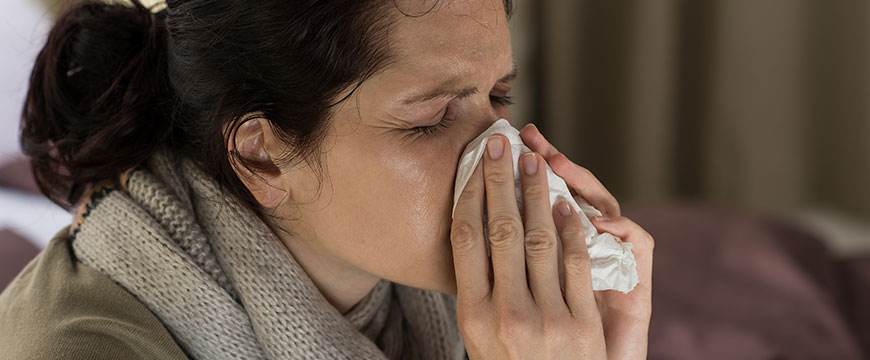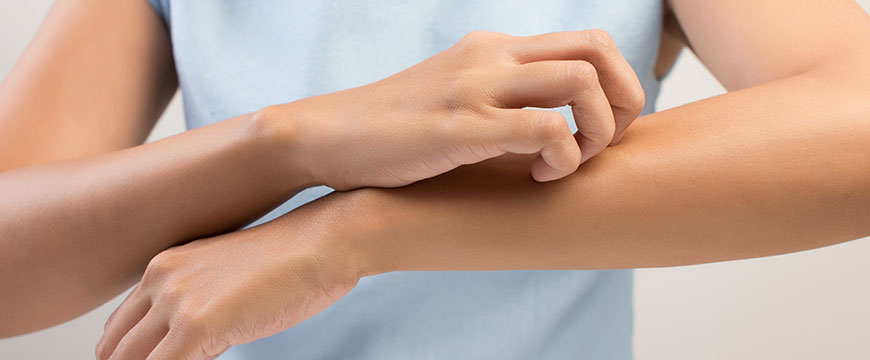All of us deserve to enjoy all types of foods, whether you are fond of meat or a strict vegetarian. Food brings people together – meals are better eaten with the company of friends and loved ones. It also tells the story of each country – in fact, there are some foods and delicacies unique to that particular country.
While food is meant to be enjoyed, some are not able to do so. This is due to their sensitivity to a particular food by which others do not have adverse effects at all. In this case, it is important to consult an allergist specialist near your area so you can be prescribed the right medication.
What is a food allergy?
A food allergy occurs when there is an adverse reaction when a certain food is consumed. Usually, allergic reactions can be mild and ones that go away after taking medications.
In the worst cases, food allergies may cause a potentially life-threatening reaction called anaphylaxis. If you have a suspected food allergy, you should have allergy testing so proper medications will be provided.
Symptoms and Causes
Among common symptoms of food allergy include the following:
- Skin rashes/eczema/hives
- Vomiting
- Diarrhea
- Abdominal pain/cramps
- Swelling mouth/tongue/face
- Watery/swelling eyes
- Tightening of the throat/difficulty in breathing
- Blood pressure drop
If you experience any of these symptoms, seek medical help from a reliable and experienced allergy physician immediately. Upon visiting an allergist doctor, prepared to be asked about your history and diet as well as undergoing blood and skin tests to determine your condition. Better yet, you should avoid food allergens that you suspect causing those adverse reactions.
Common food allergies
Among common culprits of food allergies include the following:
- Cow’s milk
Children are more affected by milk allergies than adults. This is usually caused by a bodily reaction to some milk proteins. Other milk-based and dairy products may also trigger allergies.
- Eggs
Eggs are usually incorporated and added in a lot of recipes, which means avoiding it can be quite challenging. For example, this poultry is added to most bread and pastries as well as other savory dishes. Even egg shells are used in different purposes and can be mixed in other foods and beverages.
- Peanuts/Tree nuts
Peanuts, which are technically under the legumes family, may be the culprit for your allergies but not tree nuts such as almonds and walnuts, or vice versa. Nonetheless, it is important to be careful when eating nuts as it can trigger severe reactions, especially among children.
- Wheat
Wheat is commonly found in many foods such as beer, soy sauce, and ketchup. Even cosmetics and bath and skin care products contain wheat. That is why you should check the label carefully before buying it.
- Seafood
These include certain kinds of fish and shellfish. Seafood allergies may either develop earlier in childhood or later on adulthood.
Best Food Alternatives
The good news is there are alternatives if you are allergic to the abovementioned types of foods. Here are some of the common food allergens and the best food alternatives as will most likely recommend by your allergy specialist:
- Cow’s milk
There are a lot of cow’s milk alternatives if you are allergic to this. Among your possible choices (which can be a healthier choice, too) include coconut, soy, almond, oat, hazelnut, hemp, and macadamia milk among a few. However, make sure you are not also allergic to some of the alternatives mentioned here such as oat or soy.
- Eggs
If eaten as is, you can easily avoid it. But when eggs are used as an ingredient, it can be challenging to avoid it. One of the safest options you can do is to make your own recipe not involving eggs. For binding and leavening, you can use a mix of water, oil, and baking powder, or used fruit purees such as apple sauce or mashed bananas.
- Peanuts/Tree nuts
If you are allergic to nuts, you are also most likely allergic to peanut butter. One great alternative is using almond butter and sunflower seed butter. The former contains a high amount of fiber and low in saturated fat. The latter, on the other hand, is packed with protein and healthy fat.
If you want to eat nuts but are allergic to it, you can try munching on pumpkin seeds, chia seeds, or flaxseed seed. These nut alternatives can help improve your heart and brain health.
- Wheat
If you are allergic to wheat or gluten, you can use coconut, almond, oat, or rice flour when baking. These are easily absorbed by the body, improve metabolism, and regulate blood sugar level. Instead of wheat bread or pasta, you can use quinoa, lentils, chickpeas, potato, or brown rice.
- Seafood
Seafood including fish and shellfish are great sources of omega-3 fatty acids and protein. If protein is what you need on your diet, you can find it in chicken, beef, pork, tofu, lentils, and black beans.
For any signs of food allergy, find a reliable allergy clinic near you. Seek medical help from the best allergist in Manassas, VA today.







